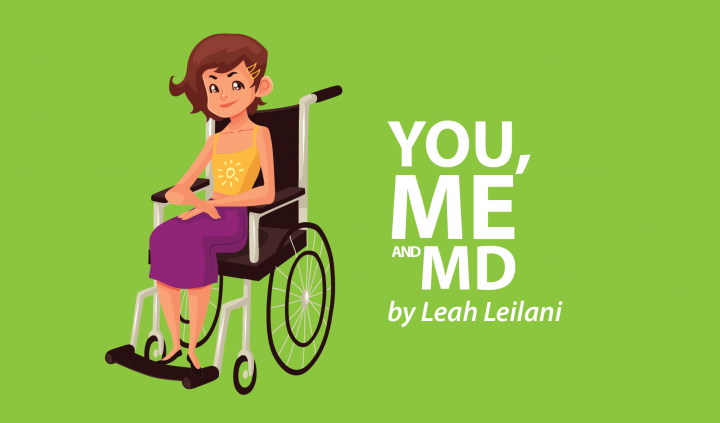My Disability Does Not Mean I Am Broken
Written by |

Let me make it clear that I am not opposed to questions about my disease and why I use a wheelchair. In fact, I encourage them. I mean, we might as well talk about the elephant in the room, right?
By this point in my life, I’m basically an encyclopedia when it comes to mitochondrial myopathy, and am a pro at Q&A. I literally get paid to talk about my disease. But please keep in mind that I am a person first. I have likes and dislikes, a personality, and morals. In other words, don’t make me feel like all I am is my disease.
There are definitely wrong and right ways to ask me questions about my disease. For example, you should never, ever ask, “What is wrong with you?” I have been asked this question not once but twice this year, once in public while shopping with a friend and once, of all places, at a doctor’s office by an X-ray technician.
A hospital is supposed to be a safe haven. A place to seek help without judgment or rejection. When entering the medical field, doctors and nurses take the Hippocratic oath. They raise their right hand and vow to do no harm to their patients. I wonder whether that X-ray technician took that same oath.
Join our MD forums: an online community especially for patients with Muscular Atrophy.
To be honest, I couldn’t care less what people think of me and my wheelchair. If I did, I’d likely be a robot, void of all emotion and unable to sympathize or show any amount of empathy. Yet I am angry that someone would choose to speak to someone else, let alone a person with a disability, this way.
When someone asks “what is wrong with me,” my first reaction is not self-pity. There simply is nothing wrong with me. Instead, the emotions that rise to the surface are anger and disbelief. It baffles me that this seems like an appropriate way to interact with another human being. There are millions of other ways the technician could have expressed her interest in my disease. I am not a stranger to judgment, unfortunately, yet it still shocks me just how much a mobility device can alter people’s mindsets and their interactions with me.
In Japan, there is an ancient tradition called Kintsugi — “kin” meaning golden and “tsugi” meaning repair. When a piece of pottery — a bowl, teapot, or planter — is broken, the object is fused back together with gold. Once the pottery is rebuilt, it is considered more valuable with its newfound life and uniqueness. This, I think, is a much more beautiful and poetic analogy than an offensive remark.
My point remains: I am not broken. My disease has shaped me into the strong and resilient woman I am today. I have gold running through my veins.
Never let anyone tell you that you are broken and in need of fixing. Don’t ever dull your sparkle.
***
Note: Muscular Dystrophy News is strictly a news and information website about the disease. It does not provide medical advice, diagnosis or treatment. This content is not intended to be a substitute for professional medical advice, diagnosis, or treatment. Always seek the advice of your physician or another qualified health provider with any questions you may have regarding a medical condition. Never disregard professional medical advice or delay in seeking it because of something you have read on this website. The opinions expressed in this column are not those of Muscular Dystrophy News or its parent company, Bionews Services, and are intended to spark discussion about issues pertaining to muscular dystrophy.






Leave a comment
Fill in the required fields to post. Your email address will not be published.